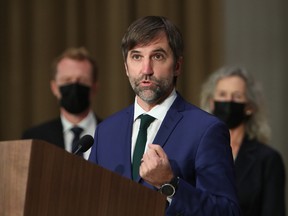
[ad_1]
“I would rather carry around a plastic bag with 5,000 euro inside, than carry around a Louis Vuitton/Gucci/Prada bag with only 100 euro inside!” ― author C. JoyBell C.
The good news as world leaders commence the 2021 United Nations Climate Change Conference (COP26) is that it’s going to bring a lot of attention to a worthwhile cause.
By no means does this imply that developed jurisdictions such as the United States, Canada and Europe don’t need to reduce their own emissions, since someone has to take the lead on addressing climate change. But the current all-or-nothing approach of attacking our own oil and gas supply and distribution channels while hoping to replace them with renewable energy sources that provide only intermittent power is causing massive unintended consequences.
U.S. President Joe Biden is exploring royalty rate increases on both onshore and offshore oil and gas, as well as potentially introducing billions of dollars of fines and fees, restricting drilling on public lands and preventing further pipeline development.
Canadian Prime Minister Justin Trudeau appears to be doubling down on phasing out the oilsands by naming long-time and radical environmental activist Steven Guilbeault as our next minister of the environment and climate change.

It isn’t surprising that capital markets have reacted to this new reality by cutting support lines to the oil and gas sector. Generalist funds and other large institutional investors such as pension plans and endowments have been bowing entirely to environmental, social and corporate governance (ESG) concerns and selling their few remaining positions that contain even a hint of fossil fuels.
Consequently, oil and gas companies have had to adjust by living within their means. Instead of putting free cash flow from higher prices into the ground and growing production, many are simply returning it to shareholders — which we entirely agree with as an investor in the sector.
We had for the longest time a material underweight to the oil and gas sector as the ESG trend was developing from 2014 to 2020. That said, now that the capital lines have been permanently cut and U.S. shale is currently being gutted by the Biden administration, we have the largest weighting to the sector we’ve ever had.
Meanwhile, the massive consolidation in the Canadian sector has left it in solid shape to face the onslaught about to hit it from Ottawa. We don’t think the domestic situation will reach the point of what is happening in Europe, but many of us will still face sticker shock when it comes to heating our homes or filling our SUVs this winter.
The good news is that oil and gas has been a huge win for investors (fortunate for those of us without housing exposure in the Greater Toronto Area or Vancouver) as the Canadian stock market posted its longest streak of gains (14 consecutive days as of Tuesday) ever.
The sector is also providing tremendous support to our currency, which gives the Bank of Canada some much needed breathing room when it comes to raising interest rates on one of the most indebted collective households in the world.
Unfortunately, though, we think the energy crisis is in its early stages and about to spread globally, leading to all kinds of repercussions, including geopolitical instability. This, in itself, could prevent many nations from implementing the required changes needed to be able to reduce global greenhouse-gas emissions, which is a loss for all of us.
Meanwhile, it would be rather fitting if Louis Vuitton/Gucci/Prada bags are handed out as event gifts at the upcoming Climate Change conference in Glasgow.
Martin Pelletier, CFA, is a portfolio manager at Wellington-Altus Private Counsel Inc, operating as TriVest Wealth Counsel, a private client and institutional investment firm specializing in discretionary risk-managed portfolios, investment audit/oversight and advanced tax, estate and wealth planning.
[ad_2]
You can read more of the news on source
